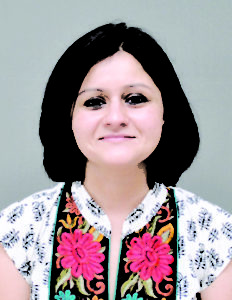 Sonia Dogra — “Health is Wealth” is a maxim best understood by those who struggle to remain fit all their lives. In fact the scuffle with diseases is sometimes a long extended one and only those with courage in their hearts and a strong will power coupled with unflinching family support system can emerge victorious.
Sonia Dogra — “Health is Wealth” is a maxim best understood by those who struggle to remain fit all their lives. In fact the scuffle with diseases is sometimes a long extended one and only those with courage in their hearts and a strong will power coupled with unflinching family support system can emerge victorious.
One such lifelong battle is against blood disorders, namely Thalassemia and Haemophilia. The former is an inherited blood disorder that maybe seen as mild or severe anaemia of sorts. People inflicted with the disease require a blood transfusion regimen, the frequency of which is dependent on the severity of the problem. In Haemophilia, the ability of the blood to clot is severely reduced causing excessive bleeding in a patient after an injury or bruising as well as in joints or in the brain.
Getting a treatment for thalassemia is cumbersome as well as expensive. While the blood disorder has countless cases in the Asian region, our very small town of Shimla has its own child patients who constantly seek medical aid and need regular monitoring.
A visit to the Paediatric ward at IGMC and a short exchange with the HOD, Dr Ashwini Sood reveals that presently the hospital deals with thirty cases of thalassemia major and twelve of haemophilia among children. Transfusion is done once in 3-4 weeks for a patient. While the investigations, oral chelators and transfusion is provided free of cost by the hospital, there are other expenses involved for the treatment and it certainly becomes a costly survival therapy. If a patient does not get regular transfusion done and the iron overload is not regulated, chances of complications are highly increased.
The story of a thalassemic family is not a happy one. There is a constant fight for survival as you are trying not only to fight the disease but also working to meet the cost of the disease. Understanding well the high cost of treatment and the requirement of blood, we at KEEKLI decided to look into the options available to the general public to help these thirty odd children seeking treatment at IGMC.
Talking of iron overload, one may say that on receiving numerous blood transfusions, getting iron shots or consuming high levels of supplemental iron, it can build up to toxic levels in the body and increase risk for liver disease, heart failure and other medical problems. In some cases it may lead to premature death. Iron chelators are given to patients which becomes an integral part of the treatment.
Adding further, says Dr Sood, “As we go for kundli match before marriage, the parents should also check the carrier state for Thalassemia of the children so that the traits / carriers should not marry the trait / carrier. If there is a Thalassemic in the family, all the first degree relatives should undergo testing for Thalassemia. A patient has to come for transfusion every three weeks and the chelation should be optimised and if one can afford Bone Marrow transplant, it should be offered (costing 20-25 lac).”
On the onset donating blood at the blood bank can be of prime importance. With thalassemic patients going for blood transfusion at least once a month, we can gauge the level of requirement and the constant need for donors. Any healthy individual, well above eighteen years of age can walk up to the blood bank and readily offer to donate blood. A voluntary act, it is relatively safe and mentally satisfying as well as a landmark in service towards society.
Secondly, we would like to touch upon the need for sponsoring of filters. It is preferable that thalassemia patients receive filtered blood. Because they receive regular transfusions, the risk of transfusion reactions increases over time if exposed to unfiltered blood. The filters are not sponsored and the patients must manage it on their own and in some cases it becomes a burdensome expenditure. A good quality filter costs around fifteen hundred rupees and shelling out this amount is not easy for all families. As a result they either go for unfiltered blood or low quality, low costing filters. Sponsoring the same via the paediatric department or the blood bank can be of great help.
The life of a patient of thalassemia even with all the transfusion is restricted. The children fighting it out at the wards at IGMC are sure their years are numbered. So are their families. At this point the government must also surely step in. The number of cases of blood disorder in the state are numbered and an effective cost free treatment can help the children and their families find a way out of emotional, financial and mental turmoil.
A hospital is not the most pleasant place to be in and having to spend a sizeable part of your childhood there is certainly not what any of us may ever want. Yet there are some children battling their blood disorders and trying to win the fight. Here is an attempt to share their part of the struggle and bring to light the dreadful fight against deadly blood disorders.





